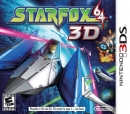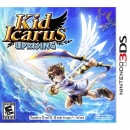padib said:
TheJimbo1234 said:
1) Many devices offer this nowadays, and it has not been popular. Few people care about it.
Market Share & Game Library
Look at the downward trend in all handheld consoles in the last few years. Is this due to the product being old or a shift in the market due to phones and tablets? Sales of the 3DS are far lower than the DS, so actually it would be accurate to assume a negative trend rather than the same share. Nintendo being the main/only developer of games is the most limiting factor and there are no signs of this improving.
Growth
You ignore the lack of new IPs and how Japanese games are selling very poorly in recent years. You also incorrectly assume that console owners = handheld owners. This is not always true. Also why buy both platforms when you can get your favourite with all the games? Most people will see the possibility of svaing money rather than spending more.
Competition
You assume Nintendo will have a large success which is too presumptious. Also Sony are working on cloud based gaming so there is a good chance that Sony will have their entire games library accessable from a phone....Good luck competing with that. Also by 2016, tablet and phone hardware will be close to the power of consoles, so this is yet another platform for gaming.
Cost
Cheap products will have low specs. Low specs will mean it won't be apple to compete with leading tablets and phones. Also if the games are poorly designed (good chane they will be as Nintnedo have not dealt with new engines for a long time), then the game would be limited to the worst platform, ergo a powerful console would have a game that looks pants and with limited content due to size. This would be solved by having a state of the art handheld, but this would cost far more to develop and buy over a console, so most people would opt to buy the cheapest platform.
|
1) If by this you are referring to the Vita, it is not an apples to apples comparison. I would say the same about streaming. If you think it is, tell me why.
2) Requested points:
Market Share & Game Library
I'll offer two points.
First, I would argue that what damage was done to the portable market by smartphones is done. In that same line of thinking, I would assume that the newness factor of smartphone smash hits has faded. Unless you have numbers showing me new IP after new IP that is just smash hit after smash hit, it's my understanding that people have now integrated smart phone gaming into their lives, and the negative influence on Nintendo's handheld market will not continue in a downtrend, but will either plateau or see a trend reversal due to Nintendo's known ability to create novelty, be it by hardware or software (new IPs).
Second, though Nintendo may be the only developer on the new "squadron" family of systems (which I highly doubt given 3rd party support on Nintendo's handheld line), with a concerted effort on one unified library, their output of games can double, thereby making the situation much more viable than the 3DS. If the 3DS with its library was able to sell a number, the bolstered library should cause a positive influence directly proportionate to the increase in the quality and size of the unified library.
Growth
I'll offer two points here also.
First, though japanese games have stagnated since the Wii days, Nintendo was the only japanese developer to brave the first storm. Therefore there must be something in Nintendo games that differentiate them in order for them to achieve that. My understanding is that Nintendo games are the best-selling games in the world, overall. Therefore their appeal is not limited to the geography of the area they are developed in. (ergo japan) Also, many people ignore the many new IPs Nintendo has been able to produce since the DS, let alone how much they can strengthen that curve by reducing duplication in their development efforts, thereby creating space for the development of new IPs.
Secondly, if what you are sayng is true (which it is), e.g. that handheld owners =/= home console owners, then that answers your question about how much money they spend and Nintendo's return on investment. Whoever buys the system they prefer (be it handheld or home console, or tablet or hybrid or whatever) can then buy all the games they prefer, according to their tastes. Nintendo spends for one game and all consumers can buy it, irrespective of the platform. Though Nintendo may force less users into buying a console they might want less, they will still get a comparable return on investment due to the opportunity of selling more games for the same expense, while having happier customers.
Competition
Sony will offer streaming, that is not a tried and tested technology in the market. Some people may not like the latency that streaming involves. I tend to shy away from it personally.
Tablets and phones can already play advanced graphics and the effect that has on the market is known. That's not a new variable to contend with.
Cost
Nintendo is not fighting the graphics arms race, thus they can keep prices low and still offer beautiful and fun games to their consumers, depending on their tastes (whether they want games on the go or a little more pretty in the comfort of their homes). My expectation on this is that the next handheld will have capabilities between the Vita and the WiiU, there are always graphical upgrades when it comes to portables why would it be any different for the handheld that will kickstart the "squadron"? In Nintendo's hardware progression on the DS line, that is what we can expect, and at the prices we have always expected on the portable line.
The subsequent home console brother in "squadron" will be more powerful than the U, but how much more powerful is not really relevant because the U is already more than capable of great graphics. What will be more important for the home console counterpart will be a lightning-fast OS so as to avoid the OS latency issues Nintendo faced with the U.
I don't think cost will be an issue at all, since it never has been.
|
- Same content across all platforms is becoming old hat (just cloud gaming). It hasn't helped to sell anything.
- It is a fact that handheld sales are down year on year for a while now. New people move to phones and people grow up and stop buying handhelds meaning the market is only retracting. You say it won't retract but don't have a shred of proof. Look at the numbers and pattern - it is not even negative cyclical retraction, but simply just neative and linear, also know as the worst.
- Volume of games means little. Look at the shovelware for the Wii. Also unless some new IPs actually start coming out, few people will care about twice as many games with Mario and Link in. Also from the looks of it, Nintendo are not very competent and programming as they have not dealt with new techniques for years. Either they will have to hire many more staff (large overheads), or still fire out old fashioned games. This never helps sales.
- New IPs? Like what exactly? (Only post those that have been a large hit).
-Jap games have been stagnating long before the Wii. Even FF has died a bit of a death. The market has shifted towards CoD styled games (which is a shame, but that is how it is).
- Cheaper development is always welcome to any company. However this is assuming that the hardware or extra staff do not leech into this.
-Game streaming has been on the PC for sometime now, and it hasn't been popular. Fact is, people like sitting on their couch, with their mates, watching a big tv and playing on a console. Few people want to do this on the toilet or in their bedroom alone.
- Moores law will/is already showing the problems with consoles and handhelds, and showing the advantage of phones/tablets short product cycle. By 2016, phones will have significantly increased in power (theory says by 100%, reality is a bit less then that). This happens every two years, so phones/tablets will have the best hardware in them, yet the consoles are fixed with very low end hardware which is always dated on release. Now back in the day, doubling performance gave you little return, but that is no longer the case. Doubling performance gives astronomical returns meaning fixed hardware is quickly made obsolete. Now consoles have the advantage of size compared to phones/tablets, but a handheld does not.
In short; a handheld will date increibly quickly.
- The makret begs to differ on cost etc. Look at the WiiU. Worst performing console - one of the worst selling consoles of all time. By 2016 a handheld should be able to outperform the WiiU. If not, Nintnedo are being cheap with hardware yet again. This does not bode well in a market which does want graphical power as part of the overall package.
The WiiU has very poor graphics. To argue otherwise shows your lack of understanding of hardware. Graphics are not subjective as some people claim, but fully quantifiable and comparable. With 4k tv's coming out, all the consoles will struggle. If you have a new console in 2016 that is not more powerful then the rest.....well we have seen what happens haven't we.



















































